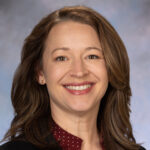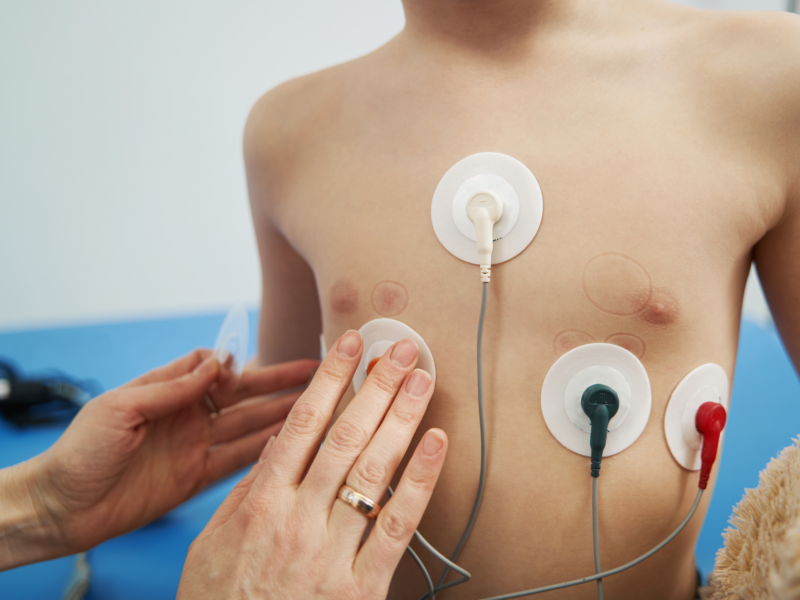Making Progress: Advances in Life-Long Care for ACHD
Making Progress: Advances in Life-Long Care for ACHD https://pediatricsnationwide.org/wp-content/themes/corpus/images/empty/thumbnail.jpg 150 150 Abbie Miller Abbie Miller https://pediatricsnationwide.org/wp-content/uploads/2023/05/051023BT016-Abbie-Crop.jpg- August 18, 2015
- Abbie Miller
With adults comprising two-thirds of the CHD population, the AHA has released a scientific statement outlining the needs of this growing demographic.
The need for a life-long approach to cardiac care for patients with congenital heart disease is a crusade that has been long fought by pediatric cardiologists and adult CHD specialists for over 40 years. Now, with a scientific statement from the American Heart Association, guidelines from the AHA and American College of Cardiology expected later this year and the first exam for board certification in ACHD scheduled for October 20, 2015, the medical community at large is making progress in building a way for these patients to receive high quality care, no matter what their age.
“Our patients are growing up and growing older. Unlike 50 years ago, a child with congenital heart disease is expected to live to adulthood, and for most, well into adulthood,” says Stephen Crumb, DNP, nurse practitioner in the Columbus Ohio Adult Congenital Heart Disease (COACH) program at Nationwide Children’s Hospital and co-author on the AHA statement. “This scientific statement is a reflection of that progress.”
Lack of CHD Training for Adult Cardiologists
There are many reasons that patients with CHD should continue to see cardiologists who specialize in the disease — from risk of comorbidities to complications of acquired heart disease in addition to CHD. However, the most alarming justification might be that CHD training is not part of the adult cardiologist fellowship.
“In the three years of cardiology fellowship, virtually zero percent dedicated time is spent on congenital heart disease training,” says Curt Daniels, MD, director of the COACH program at Nationwide Children’s.
The need for ACHD as a subspecialty has been well established, and on October 20, 2015, the first exam for board certification in the subspecialty of congenital heart disease will be offered.
“This is a big step in providing quality care for this growing population,” Dr. Daniels confirms.
Preventing and Treating Comorbidities
The adult population of CHD patients is a diverse group, including those who survived without surgery, those who had repairs with multiple procedures after infancy, and those who only had surgery during infancy. There are even those who were not diagnosed until adulthood.
For most adults with CHD who had repairs in childhood, there is often this “honeymoon” period, says Dr. Daniels. They feel good during the rest of their childhood and adolescence, and they may believe that they were “cured” of their congenital heart disease.
“Unfortunately, we now know that for almost every patient who had surgical repairs correcting their defects, they remain at risk for cardiac and noncardiac comorbidities such as arrhythmias, heart failure and liver or renal failure,” explains Dr. Daniels, who is also professor of Clinical Cardiology at The Ohio State University College of Medicine.
According to the AHA statement, ACHD patients with heart failure, arrhythmia, acquired heart disease and other acute morbidities are likely to present locally to hospitals that may not have established ACHD programs.
“Coordination of care between local hospitals and ACHD regional programs is important for the survival of these patients,” Dr. Crumb says.
CHD and Acquired Heart Disease
Reinforcement of a heart healthy lifestyle gains new importance for CHD patients entering adulthood. For patients with CHD, the prospect of acquired heart disease brings a new set of health care challenges and complications.
Primary prevention of cardiovascular risk factors for acquired heart disease is imperative for adults with CHD, the AHA statement asserts. A thorough assessment and comprehensive approach to risk factor management for issues such as hypertension, diabetes mellitus and hyperlipidemia will be crucial to avoiding acquired heart disease in the ACHD patient.
“I tell my patients: ‘You’ve been through a lot already. You don’t need to compound that with acquired heart disease if you can avoid it.’,” says Dr. Crumb.
Transition and ACHD Programs
Seeing a cardiologist who specializes in CHD is essential for patients with the condition. However, Dr. Daniels asserts that patients also need specialized programs.
Transition programs and ACHD programs are important to supporting the continuum of care needed for patients with CHD. Seven years ago, Nationwide Children’s began their transition program within the COACH program to help patients and their families navigate the transition to adult care.
The COACH program was started in 2000 by Dr. Daniels as a way to improve care for patients in the ACHD population. As a collaboration between Nationwide Children’s and The Ohio State University, the multidisciplinary COACH team works to provide comprehensive patient care and to educate clinical providers on the needs of the ACHD population, says Dr. Daniels.
“There aren’t many programs like us,” says Dr. Crumb. “The ACHD community is small and tight-knit group, and within that community, we are recognized as a leading program in clinical care, education/training of providers and advocacy.”
“In the past, resources, properly trained cardiologists and cooperation between hospitals limited our ability to transition CHD patients to ACHD care. Patients were being lost to care,” adds Dr. Daniels. “Now, specialized programs and board certification in congenital heart disease for cardiologists, as well as scientific statements and guidelines, are creating a health care community better equipped to serve this patient population and provide life-long specialized care.”
Reference:
Bhatt AB, Foster E, Kuehl K, Alpert J, Brabeck S, Crumb S, Davidson WR Jr, Earing MG, Ghoshhajra BB, Karamlou T, Mital S, Ting J, Tseng ZH, on behalf of the American Heart Association Council on Clinical Cardiology. Congenital heart disease in the older adult: A scientific statement from the American Heart Association. Circulation. 2015 Apr 20. [Epub ahead of print]
About the author
Abbie (Roth) Miller, MWC, is a passionate communicator of science. As the manager, medical and science content, at Nationwide Children’s Hospital, she shares stories about innovative research and discovery with audiences ranging from parents to preeminent researchers and leaders. Before coming to Nationwide Children’s, Abbie used her communication skills to engage audiences with a wide variety of science topics. She is a Medical Writer Certified®, credentialed by the American Medical Writers Association.
-
Abbie Millerhttps://pediatricsnationwide.org/author/abbie-miller/
-
Abbie Millerhttps://pediatricsnationwide.org/author/abbie-miller/
-
Abbie Millerhttps://pediatricsnationwide.org/author/abbie-miller/
-
Abbie Millerhttps://pediatricsnationwide.org/author/abbie-miller/
- Post Tags:
- ACHD
- Adult Congenital Heart Disease
- Posted In:
- In Brief







